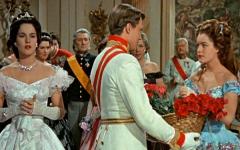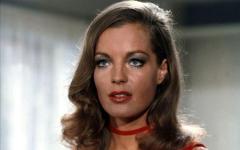SOME SURPRISING FACTS - “SISSI”: Actors and the Historic Figures
The Sissi Movies of 1950s still have enjoyed a high popularity. The trilogy reflects the taste of the Austrian public of the 1950s. The aim of it was to make the audience forget about the horrors of the Second World War while watching it. Since then, it has been one of the most successful German-speaking film of the world. Sissi (1955) is the first part of the trilogy, which is followed by two sequels, Sissi - The Young Empress (1956) and Sissi - Fateful Years of an Empress (1957). The fourth part was also planned, however, Romy Schneider refused to be the young Empress again, finally, she became Sissi again in the film Ludwig (1973) directed by Luchino Visconti. (Read more about it: Romy Schneider, the Empress of People’s Heart) The movies do not have much to do with the historical reality, the first part follows the chronological order more than the two subsequent, however, for instance, the fishing scene (referring the first meeting of Franz and Elisabeth) did not even happen in the historical reality. Even if the main facts are proper, if somewhat incomplete, the chronological order is totally disrupted, especially in the subsequent two movies.
Sissi (1957) - Photo credit: Seven Stars Digital
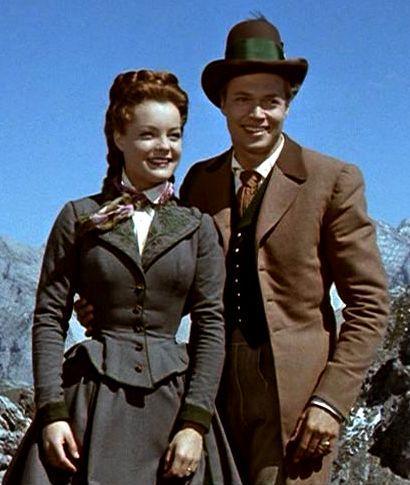
Sissi was first broadcast in the Austrian cinemas on 22 December, 1955. In Hungary, this popular cult trilogy is on one of the Hungarian TV channels every Christmas remembering perhaps unwittingly of Elisabeth's birthday since the Bavarian Duchess was born on 24 December, 1837. After seeing the film starring Romy Schneider then having a look at a painting or a photograph of the Empress, many say "she was not as beautiful as in the movie!" This might be true at least as far as the young Sisi is concerned, however, there was a young irresistible charm in the (real) young Sisi. Elisabeth did not consider herself as a beauty either at that time or during the first years of their marriage (only later, in Madeira). When she was informed by her mother, Ludovica that it was her and not Helene, the older sister, who the Emperor wanted to marry, she was extremely surprised and said "I do not understand at all how the Emperor could think of me. I am so young and insignificant. " (Egon Caesar Corti, Elisabeth, 23)
Sissi (1957) - Photo credit: Seven Stars Digital
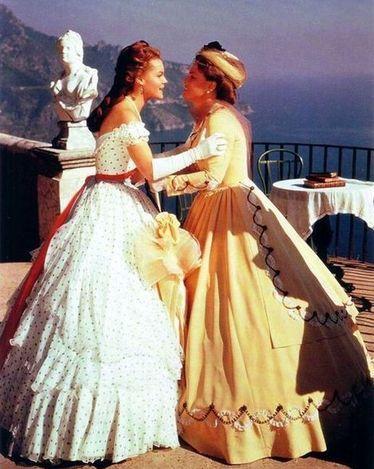
Some surprising facts or “accidents”: Actors and the Historic Figures
The casting of Sissi was perfect in many respects. Magda Schneider, Sissi’s mother on the screen was the one of Romy Schneider in the reality, too. In addition, Romy was at Elisabeth’s age (at the time of the events) when the first part was shot. One can calculate that Elisabeth was fifteen and a half years old when meeting Franz Joseph (August, 1853). Romy was born in September 1938, so in 1955, she celebrated her 17th birthday. Karlheinz Böhm (Franz Joseph) was ten years older than Romy, and in the reality, there were seven and a half year age gap between Elisabeth and Franz Joseph. Another interesting thing is that the two leading actors, Romy and Karlheinz died on the very same day with thirty-two year difference: Romy passed away on 29 May 1982 and Karl on 29 May 2014. The man lived exactly two times longer than the woman.
During the shooting of the first part of the trilogy, the 16-year-old Romy called Karl “Uncle Karl”, which made the man laugh so he asked the girl not to be so formal with him. Two actors had a very good relationship with each other. Romy was said to make a promise to Karl that she would tell him the name of the first man who she had the first sexual intercourse with. It is known that Karl got a message from Romy that time, however, its content is not known. There were gossips that there were some romantic feelings and something happened between the two actors but it is more likely that they were only very close friends. Anyway, Magda Schneider would have not allowed anything to happen between them. Later there were several photos taken of them while they were together in film festivals (for instance, in Cannes), in which they are dancing and having a cheerful conversation.
Sissi (1956) - Photo credit: Seven Stars Digital
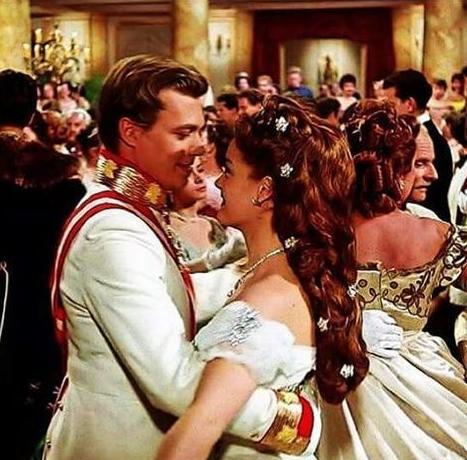
Speaking about the film, neither Elisabeth, nor Romy liked the role of an empress. Romy refused to play Sissi again (so there was no fourth part) to the displeasure of the people who loved the movie. We know that she did not really wanted to make the third (1957) one either. (Read more about Romy’s attitude towards Sissi’s character here.)
Unfortunately, life also proved to be a good director... Both women (Elisabeth and Romy) were killed dramatically: the Empress was assassinated by an Italian anarchist in 1898 (read more) and Romy died of drug (medicine) overdose. One of them (Elisabeth) was stabbed in the heart, the other (Romy) had a cardiac arrest (so also a “broken heart”). Some say that Romy was foretold to have a similar death than Elisabeth had had. I would add the following: Elisabeth had foretold that her soul would leave through a little hole on her heart...
As regards the the Emperor and Karl: Both of them died at the age of 86 (natural death). Franz Joseph outlived Elisabeth, died 18 years later than she, and loved her during his whole life. When the Empress was assassinated, the Emperor was known to say “no one will ever get to know how much I loved this woman”. Another fact is that neither Elisabeth nor Romy managed to find romantic love.
And can the similarities be more dramatic? Unfortunately, yes. Romy lost her son as a result of an accident when he was 14 years old, Elisabeth’s son, the Crown Prince committed suicide in 1889. Neither of the women could ever recover from this emotional shock.
Ernst Marischka: Sissi-trilogy. Facts and interesting things - background information relating to the movie. (First video)
Acknowledgement: To my Friend, Joanna Mirek, who provided me some information to write the second part of the article. Visit Joanna's blog about Elisabeth: Cesarzowa Sisi
Visit Empress Elisabeth on Facebook.
MAGYARUL: Néhány meglepő tény vagy “véletlen”

